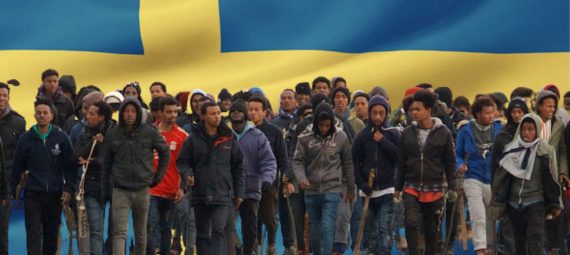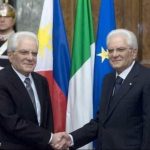VLADAN LAUSEVIC
During 2015 and the large refugee and humanitarian situation between Europe and Asia, Sweden accepted around 160 000 refugees, asylum-seekers, and migrants from other parts of the world such as Syria and Afghanistan. After that, Sweden became a target for far-right extremists and populist myths about “Sweden’s suicide” and “Sweden as the rape capital of the world”. Such behaviors are part of what is known as “culture war” when social, cultural, and non-economic political communication and issues are dominating public debates.
Culture wars are nothing new, for example, with the historical case of 1968 debates, demonstrations, and dynamic changes as in Europe and America. Also, culture wars often touch global or international topics but are primarily particular by being more limited to national political contexts. For liberals, cultural wars as via identity politics, collectivism, and nationalism are often challenging because liberalism is very much about economic topics and the idea of free and autonomous individuals.
CULTURAL WAR OF SWEDEN IN A BOOK
One of the recent books dealing with the political situation in Sweden is “Notes from the culture war” (Anteckningar från kulturkriget) by liberal opinion-maker and political scientist Andreas Johansson Heinoe. His book is mainly about how the political debates have changed in Sweden since 2016 and how the culture war is being conducted. Several parts of the book, so far only written in Swedish, also include important insights regarding liberalism in theory and practice.
Besides that Heinoe’s book is mainly focuses on Sweden, there are also several references to and writings about the development in Europe. One thing that Heinoe points out is the paradox regarding communication. The rise of right-wing populist parties during the 2010s has resulted in others as liberals, socialists, and conservatives have switched the focus by communicating about national-level politics while focusing less on Europe and the global level. One consequence is that far-right and nationalist parties are now, in some cases communicating more about EU-level politics as regarding immigration despite the history of being anti-EU.
NATIONAL VALUES MANDATORY
Another example that Heinoe makes is regarding “national values” communication. For example, in 2016, the Danish prime minister Lars Lökke Rasmussen, from the ALDE member party Venstre, stated that immigrants have to accept “Danish liberal values” in order to become residents and citizens. Similar statements have been made in Sweden since 2016, mostly by right-wing and conservative parties. According to Heinoe, such behaviors are simply incompatible with democracy since individuals cannot be forced to certain values by the government and have the right to choose and shape their political values and beliefs.
Neither can liberal nor many other values be limited to nations and countries since liberalism is about universality, pluralism, and openness. Therefore, Heinoe emphasizes the importance of universal values like freedom and solidarity, constitutional patriotism, and the importance of the rule of law for the function of democratic, free and open societies. Because as individuals, we can all have different values, but we can also accept that the government’s function is to secure our rights and freedoms.
EUROPEISTS vs EURO-NATIONALISTS
Another example of the development in Europe is when it comes to the commissioner Margaritis Schinas who also is working with “promoting European Way of Life”. According to Heino, this is based on two similarly uncomfortable ideas about Europe. One side is the “Euro-bureaucratic” idea that EU:s institutions are based on “European values” that Brussels needs to be supported by Brussels. On the other side, the “Euro-nationalist” idea is that cosmopolitans, Muslims, and Arabs threaten Europe. Heinoe points out that ideas about combining the imagination of European heritage with nationalist struggle are nothing new. For example, nationalist politicians such as Slobodan Milosevic during the 1990s also presented himself as a defender of “European civilization”.
Heinoe also exemplifies such behaviors by referring to the far-right Sweden Democrats party. Before 2016, Sweden Democrats were arguing that the EU was threatening Sweden’s identity and culture. Today, the Sweden Democrats communicate in a style that the real problem is that the EU is governed by cosmopolitan elites that are “selling out the European culture”. This behavior partly explains why far-right populist and nationalist parties are now cooperating more with the ambition to govern the EU. And if liberals want to prevent such a future, it is important to be more active in debates about identification, Europe, and institutions through new ideas and storytelling while avoiding nationalist and civilizationist traps.
Author Profile
- Emanuele Lombardini is our blog editor-in-chief. He is an experienced journalist, a Libdem, Italian and passionate European.
Latest entries
Post Disclaimer
The opinions expressed by the author of this post do not necessarily represent the opinions and policies of ELfR.





